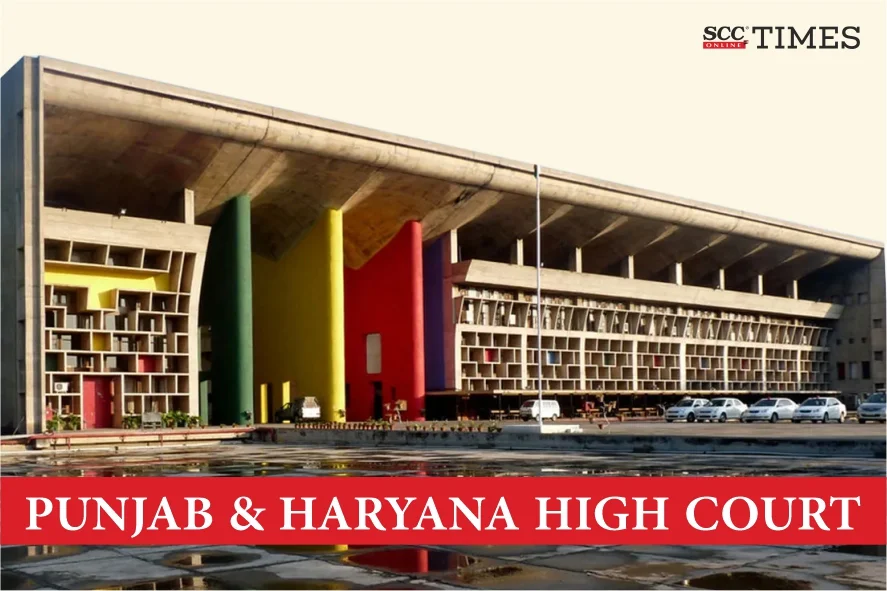Punjab and Haryana High Court: In an appeal filed for setting aside the impugned judgment dated 15-01-2020, passed by Judicial Magistrate, First Class, Ferozepur (‘the Trial Court’), whereby the respondent was acquitted of the charges in a complaint filed under Sections 138 and 142 of the Negotiable Instruments Act, 1881 (‘the NI Act’), the Single-Judge Bench of Manjari Nehru Kaul, J., stated that a payment made as a bribe, being an illegal and immoral transaction, did not constitute a legally enforceable liability. Thus, the trial Court correctly concluded that no legally enforceable debt existed in this case, and the cheque issued in furtherance of an unlawful act could not give rise to criminal liability under the NI Act.
The Court stated that the findings of the Trial Court were in consonance with the settled principles of law governing the enforcement of negotiable instruments and could not be deemed perverse.
Background
The appellant contended that the respondent in collusion with his brother-in-law and certain other individuals, intentionally deceived the petitioner by providing false assurances. It was stated that the respondent gave an undertaking and assured the appellant that if a sum of Rs. 1,20,000,00 was paid to the respondent’s brother-in-law, he would secure employment for certain individuals in the Punjab Police.
Acting upon the assurance, an amount of Rs. 1,20,000,00 was given to the respondent’s brother-in-law. However, it soon became apparent that no such appointments were secured, and the appellant realized that a fraud was committed. Consequently, FIR was registered under Sections 4201 and 120-B2 of the Penal Code, 1860 against the respondent’s brother-in-law and other accomplices for the offences of cheating and criminal conspiracy.
After the FIR was registered, the respondent approached the appellant and proposed a settlement, acknowledging the deceitful conduct. Further, as a part of this compromise, an affidavit dated 05-04-2016, was executed by the respondent. Subsequently, the respondent issued a cheque dated 05-10-2016, for the sum of Rs. 1,00,000 in the appellant’s favour to discharge his legal liability. However, when the appellant presented the cheque for encashment, it was dishonoured on 02-11-2016, with the bank noting that the respondent’s account had been closed. Despite the issuance of a legal notice on 28-11-2016, the respondent failed to remit the cheque amount within the statutory period, leading the appellant to pursue legal action.
The Trial Court vide impugned judgment acquitted the respondent of the charges. Thus, the appellant filed the present appeal and contended that the Trial Court gravely erred in failing to appreciate the evidence adduced during the trial, thereby rendering the judgment liable to be set aside.
Analysis, Law, and Decision
The Court after careful examination of the evidence and the submissions made by the parties, noted that the appellant himself unequivocally admitted during his cross-examination before the Trial Court that the cheque amount was paid as a bribe to the respondent for securing Government employment in the Punjab Police by certain job aspirants. Thus, the Court stated that considering the admission, it was imperative to clarify that the cheque amount could not, under any circumstances, be deemed to have been issued in discharge of a legally enforceable debt or liability.
The Court stated that under Section 138 of the NI Act, the mere issuance of a cheque did not constitute an offence unless it was proven that the cheque was issued for the discharge of a debt or liability that was legally enforceable. It was well settled that any debt or liability arising from a contract or promise that was unlawful, immoral, or not legally enforceable did not attract the provisions of Section 138 of the NI Act.
The Court stated that a payment made as a bribe, being an illegal and immoral transaction, did not constitute a legally enforceable liability. Thus, the trial Court correctly concluded that no legally enforceable debt existed in this case, and the cheque issued in furtherance of an unlawful act could not give rise to criminal liability under the NI Act. The Court stated that the findings of the Trial Court could not be deemed perverse, rather they were in consonance with the settled principles of law governing the enforcement of negotiable instruments.
The Court stated that the Trial Court was right in acquitting the respondent, as the cheque amount did not represent a legally enforceable debt or liability, and therefore, no offence under Section 138 of the NI Act was made out.
[Surinder Singh v. Ram Dev, 2024 SCC OnLine P&H 12999, decided on 15-10-2024]
Advocates who appeared in this case:
For the Appellant: Ramesh Kumar Jha, Advocate.
1. Corresponding Section 318(4) of Nyaya Sanhita, 2023 (‘BNS’)
2. Corresponding Section 61(2) of BNS







